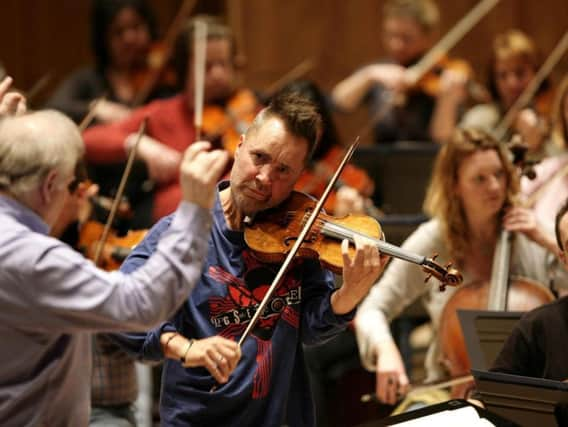Classical Chat: Concertos are dazzling shows of skill


Concertos, or pieces for an orchestra accompanying a solo instrument or (much more rarely) a small number of soloists, appeared during the Baroque era in the 1700s with Bach providing some early masterpieces in the form.
As orchestras got bigger the scale and showiness of the pieces increased, composers such as Mozart bringing the drama of the opera stage into the concert hall.
Advertisement
Hide AdAdvertisement
Hide AdBy the 19th century, solo instruments, especially pianos, were powerful enough to play at the same time as the full orchestra, leading to concertos becoming more thrilling battles and conflicts between soloists and groups, rather than the series of delicate exchanges there had previously been.
Through the 20th century and now, concertos have lost none of their popularity, with composers still churning out vehicles for the virtuosity of high-profile solo players.
Classical music fans will doubtless all have their own favourites but here are some suggestions for where rookies could take the plunge:
Mendelssohn’s Violin Concerto: A stunning piece full of instantly-recognisable melodies, this is also an unusually radical piece, especially in its dramatic opening where the soloist swoops in over the still-settling orchestra with a beautiful first tune.
Advertisement
Hide AdAdvertisement
Hide AdRachmaninov’s Piano Concerto No.2: Several Russian piano concertos have become famous but this is perhaps the best-known, contrasting outbreaks of joy with Slavic pensiveness and an opening chord sequence that will be instantly recognised.
Mozart’s Sinfonia Concertante: This piece has two soloists (a violin and a viola) and is quite simply one of the most beautiful works ever composed in the form, with long, operatic singing lines entwining magically.
Elgar’s Cello Concerto: An outpouring of grief at the horrors of World War One, this searing work tugs immediately at the heart-strings.
Saint-Saens’ Piano Concerto No.2: Saint-Saens was a brilliant pianist and this combines incredible drama with lilting, French romanticism.